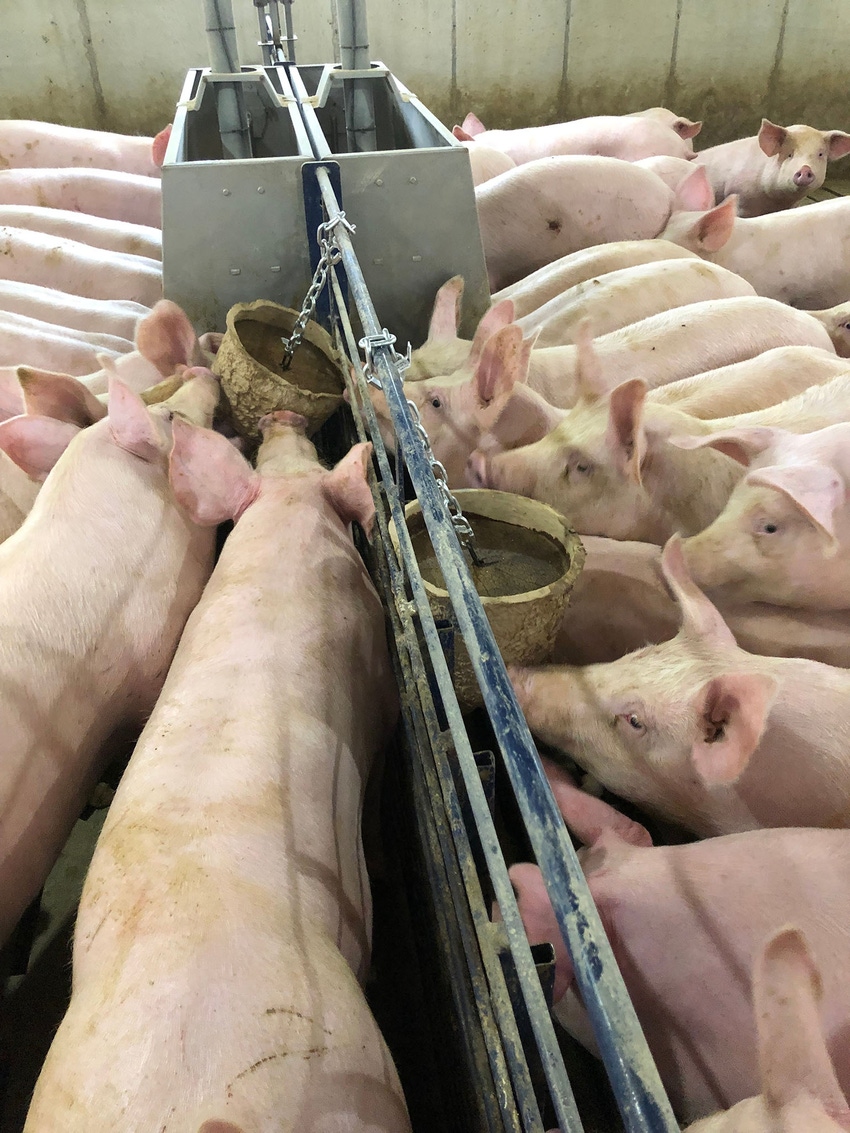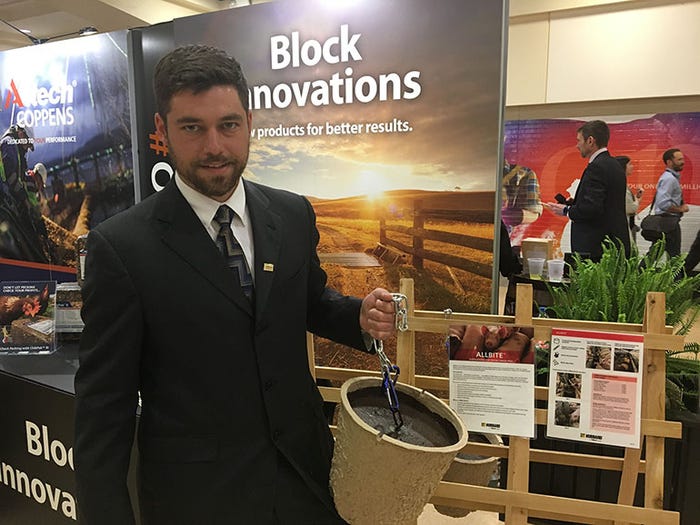Bite on this instead: Block lures pigs away from biting tails
During ONE: The Alltech Ideas Conference, Hubbard officially launched AllBite, a molasses-based block, that not only addresses aggressive behavior in specific pens, but also provides a biological that moderates neurotransmission.

Getting grow-finish hogs to stop tail biting and other vice behaviors has been testing producers’ patience and impacting their pocketbooks for years. While nutritionists have tried remedies such as adding extra salt, extra fiber or extra fat to the ration as a whole-herd approach to the issue, one animal nutrition company says it has developed a new product, that specifically gives those aggressive pigs something else to sink their teeth into.
“Vice behavior in pigs, or pig aggression, seems to be getting worse,” says Jamie Pietig, senior swine nutritionist at Hubbard Feeds. “It’s an animal welfare concern and we need to make sure that we’re doing everything we can do to produce pigs in a safe, healthy and sustainable manner, and part of that is making sure that we take care of aggression such as tail biting, ear necrosis, flank sores, and that’s what really led to this product and the innovation behind it.”
During ONE: The Alltech Ideas Conference, Hubbard officially launched AllBite, a molasses-based block, that not only addresses aggressive behavior in specific pens, but also provides a biological that moderates neurotransmission, or as Pietig says has a “calming effect” on pigs.

“We’ve got molasses in there, and that’s going to attract the pigs. It’s going to have a mineral texture to it and it’s going to definitely take the pigs’ attention and behavior away from picking on each other to pecking on the block,” Pietig says. “The beauty of the product is that most of the time pig aggression and tail biting doesn’t happen to all of the pens in the barn. It’s just a certain one or two that may be in the corners, that don’t have quite as much air flow, so you can treat very specifically, rather than trying to treat the entire barn.”
Available through all Hubbard dealers, AllBite comes in a 23-pound, biodegradable container and is designed to be hung from the fence or the ceiling with a chain. The chain hanger reduces the possibility of the block getting pushed into a corner and ignored by the pigs, and also keeps the product clean, increasing the likelihood that the pigs will continue chewing on the block.
“One of the problems with that is when you try to address an entire group of pigs with feed, it’s really, once you see the problem, once its reported, once it gets to the nutritionist and to the feed mill and when the next batch of feed is delivered with the reformulation, it might be two weeks later,” Pietig says. “With the block, if you have a couple of them stocked in your barn, I mean it’s immediate. You can stop it right now and do something about it.”
While Hubbard’s sister company Ridley is known nationwide for its block technology on the beef side, Pietig says this is a first for the swine industry and has been something the Hubbard team has been working on for the last three years.
“One of the hardest parts about developing the block was to make it hard enough to withstand, 25 300-pound pigs trying to do their best to destroy it,” Pietig says.
The Hubbard nutrition team recommends using blocks at the first sign of pen aggression during the two weeks prior to the first cut going out of a finishing barn.
“If you see you one pig in that pen and it has a little nick on his tail, that’s right when you should be putting it in,” Pietig says. “If it’s so progressed, that we’re treating on the back end, the effectiveness isn’t going to be as great as if you could get it in there as soon as the first sign of any aggression or any lesions on pigs from aggression.”
Pietig says while the industry continues to be more productive in genetics and breeding for a higher average daily gain, better efficiency, better quality meat, etc., one of the things that has been hardest to influence has been behavior and the aggressive nature of pigs.
“This is a problem that frustrates all professionals and producers and it seems like there’s very little we can do to help prevent it,” Pietig says. “I think it’s going to get great traction in the market and within the industry just because it is a welfare issue and we want to make sure that we’re doing the best job that we can and this is a tool that can help them.”
About the Author(s)
You May Also Like





